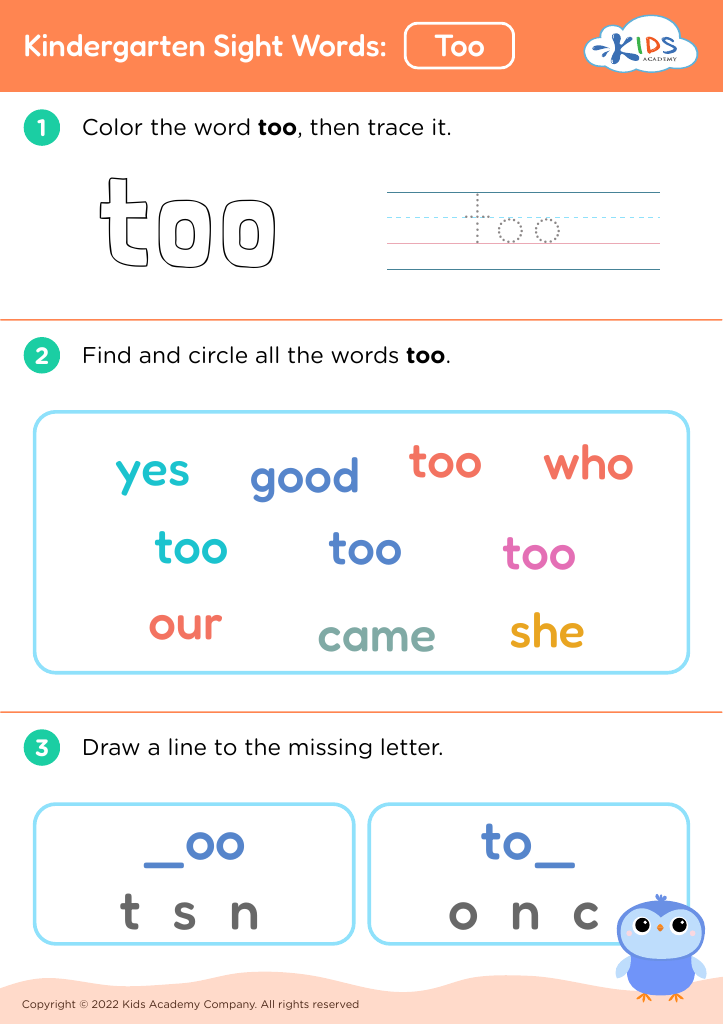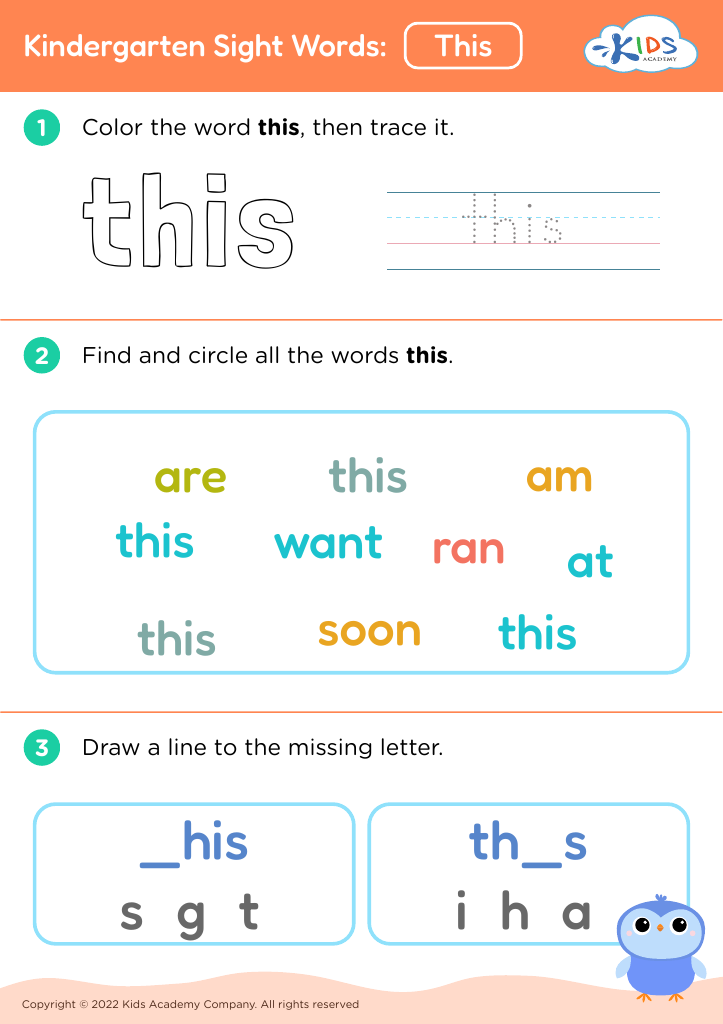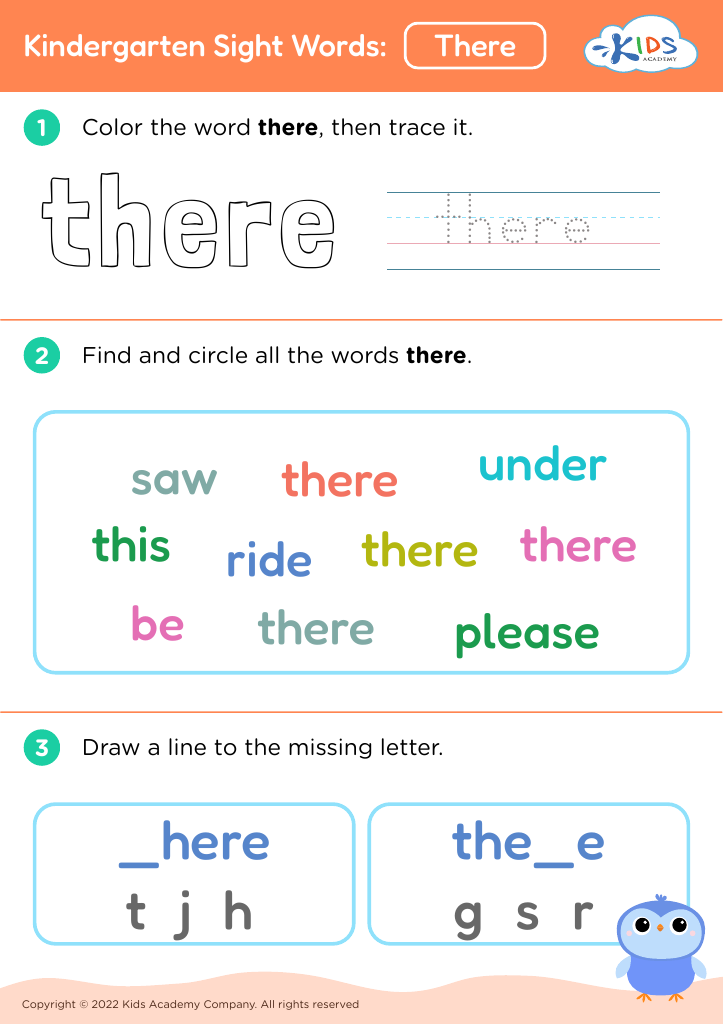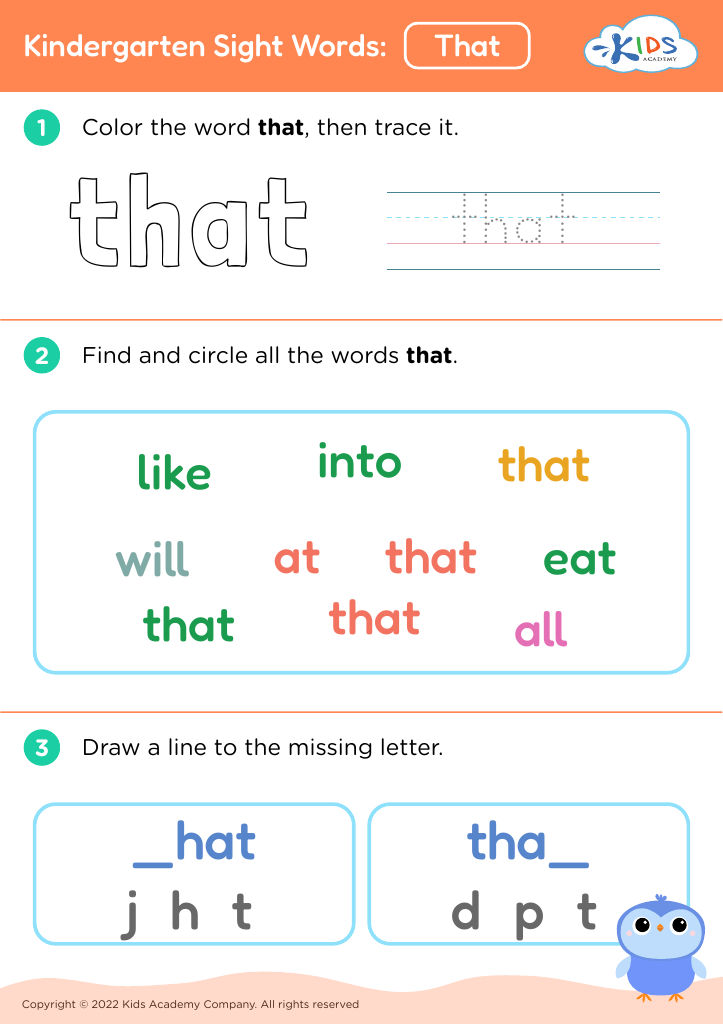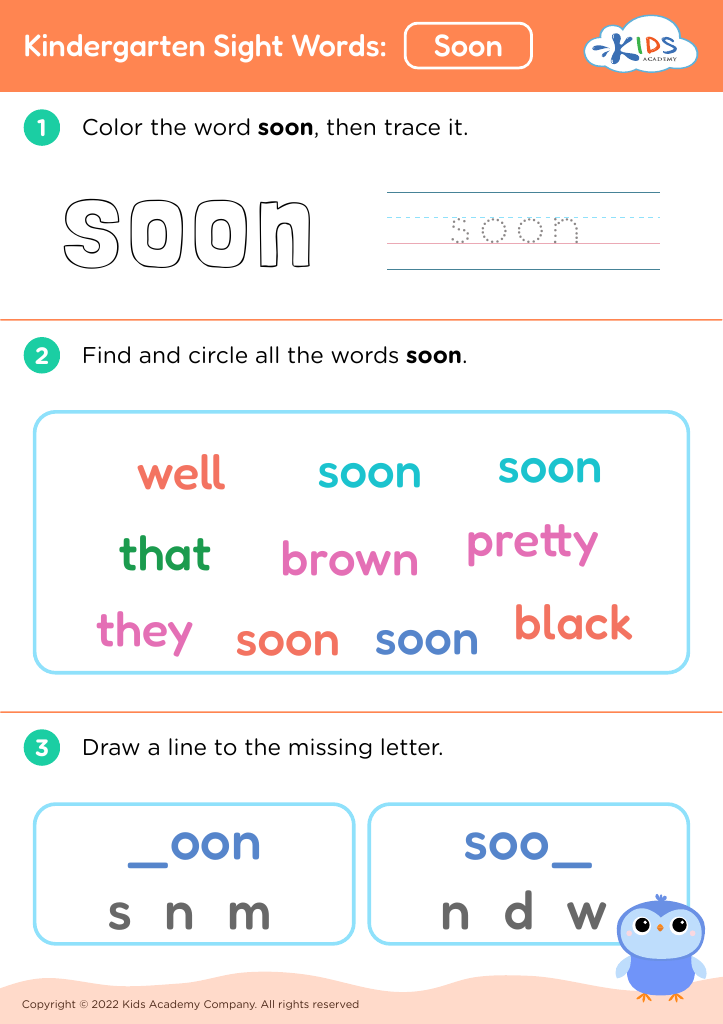Reading Worksheets for Ages 4-5 - Page 14
319 filtered results
-
From - To
Reading for Ages 4-5 is a crucial developmental stage where children begin to recognize words, start understanding stories, and develop a lifelong love for reading. Worksheets tailored for this age group play a significant role in fostering these essential literacy skills. Here’s why worksheets on reading are particularly beneficial for children ages 4-5:
-
Building Blocks of Literacy: Worksheets designed for Reading for Ages 4-5 focus on the foundational elements of reading, such as letter recognition, phonics, and simple word identification. These are the building blocks that support a child's ability to read fluently in the future.
-
Engagement and Fun: At ages 4 and 5, children learn best when they're having fun. Reading worksheets often incorporate colorful illustrations, engaging stories, and interactive activities that not only make learning enjoyable but also keep young learners engaged and motivated.
-
Personalized Learning: Every child is unique, with their own pace of learning. Worksheets on reading can be selected or adjusted to suit the individual learning needs and levels of children, providing a personalized learning experience that can cater to their specific strengths and areas for improvement.
-
Practice and Reinforcement: Practice makes perfect, and this is especially true when it comes to reading. Worksheets provide a structured way for children to practice reading skills, reinforcing what they have learned and helping to instill confidence in their abilities.
-
Parental Involvement: Reading worksheets for ages 4-5 also offer an excellent opportunity for parents to get involved in their child's learning process. Working on worksheets together can strengthen the parent-child bond and provide children with additional support and encouragement.
In conclusion, reading worksheets are an invaluable tool in supporting the literacy development of children aged 4-5. They lay the groundwork for successful reading skills, making learning enjoyable, offering personalized pathways, and enabling both practice and parental involvement in the learning journey.


